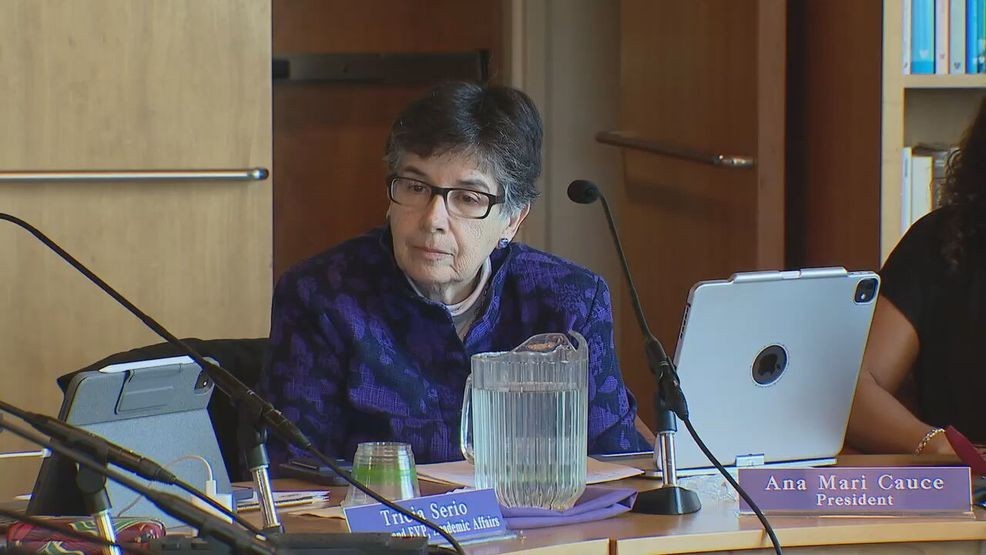SEATTLE — The University of Washington’s president and the chair of the Board of Regents publicly denounced the occupation and destruction of the campus Interdisciplinary Engineering Building that resulted in the suspension of 21 students.
At the UW Regents meeting Thursday, UW President Ana Mari Cauce unequivocally told the board, “There is no argument about whether it was a peaceful protest. They didn’t mean it to be a peaceful protest.”
“We do have to draw a line,” she said.
The UW said Wednesday that 34 people were arrested in connection with Monday’s protest and occupation of the engineering building. The UW suspended the 21 students who were arrested and banned them from all UW campuses, and the non-student participants “will be banned from the UW’s Seattle campus.”
The Monday occupation and violence led to at least $1 million in damage to the IEB, according to UW officials. The IEB opened in a soft launch in March.
PHOTOS | Protest damage inside UW Interdisciplinary Engineering Building
The occupiers said they were trying to send a message that the university should divest itself from any interests with Boeing, a company that donated $10 million towards the overall construction of the new building.
The events have led to a federal task force investigating claims of antisemitism on campus, and the university has acknowledged that federal grants and contracts are also being reviewed.
Board of Regents Chair Blaine Tamaki also denounced the violence and spoke at length Thursday about the political ramifications and dynamics currently at the UW.
“We will not tolerate any type of antisemitic behavior,” Tamaki said as part of a soliloquy. “We support any and all punishment that the law permits against the violators.”
Tamaki continued, and the room remained quiet.
“The one area that the university really needs to improve in the long run is having more political, ideological diversity,” said Tamaki, who is from Yakima and was appointed by former Gov. Jay Inslee.
“We’re so polarized in our society because we stay within our own bubble of information, and we don’t expose ourselves,” Tamaki said. “I watch Fox News just because I was a trial lawyer, I was trying to learn about how other people think. It’s amazing. It’s amazing how different the messages are, their topics are so different. If you watch CNN, MSNBC, they’re talking about one thing, and Fox News is talking about something completely different.”
“I’ll say this about political differences, they’re not that big of a deal. We shouldn’t be so polarized, because what it boils down to is people who disagree over the size of government and the pace of change,” Tamaki continued. “I just wanted to say that I think it would be, it would benefit the UW to have more diversity among our faculty.”


